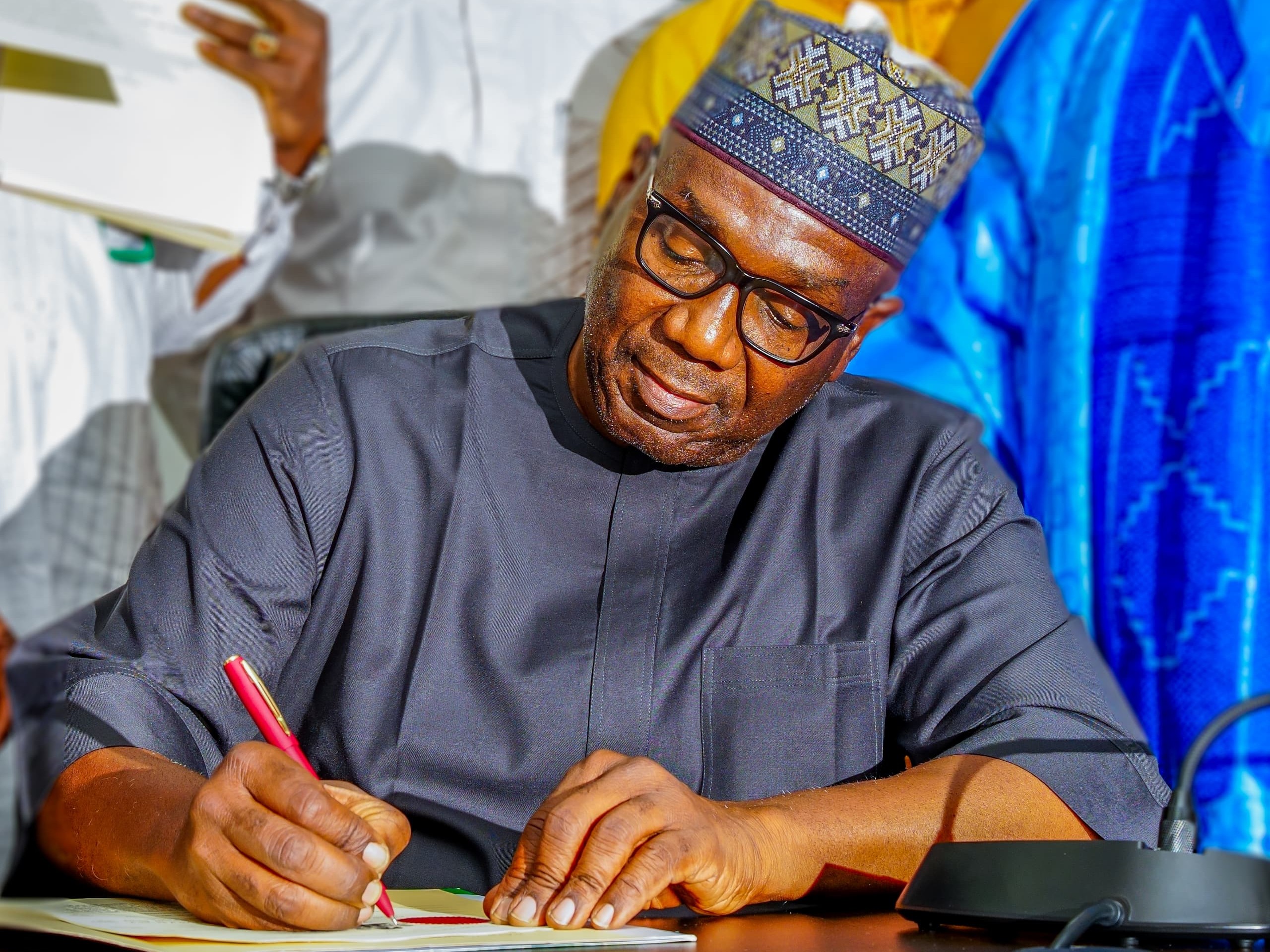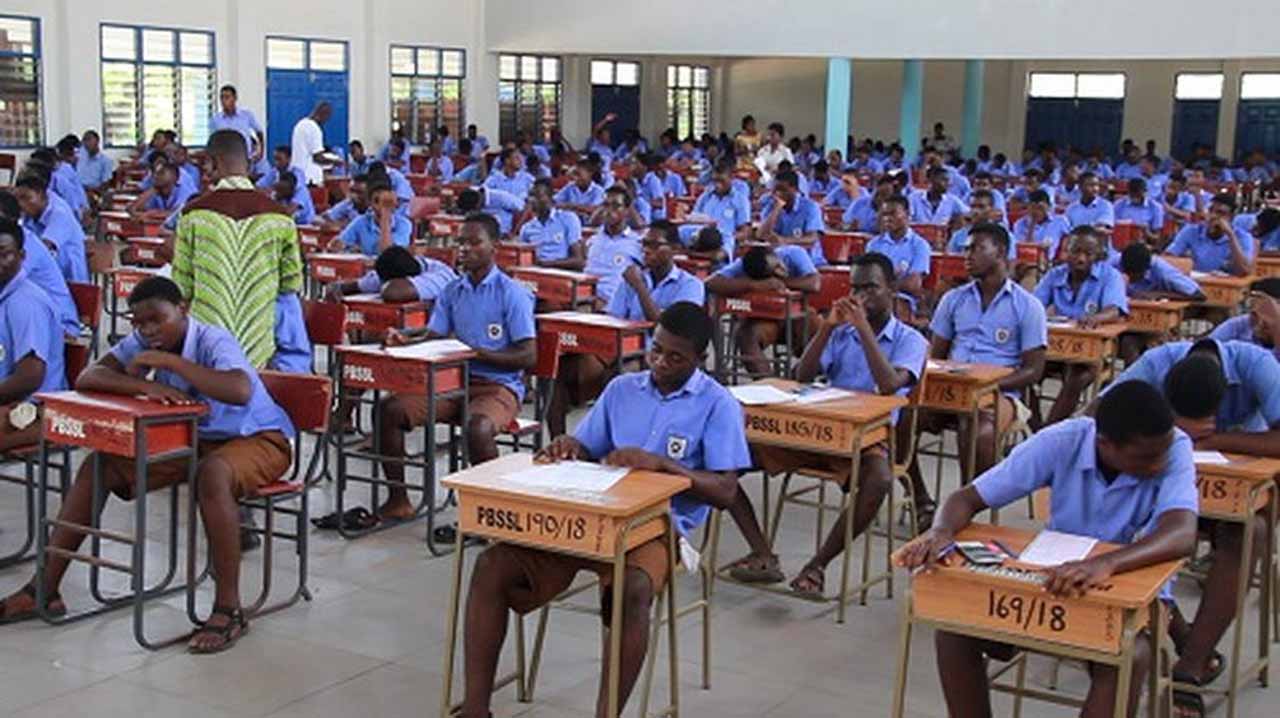As the 2027 general elections approach, a quiet but intense political realignment is reshaping Kwara State’s landscape, setting the stage for what could become one of the fiercest contests in recent memory.
With just over two years to the polls, Governor AbdulRahman AbdulRazaq’s All Progressives Congress (APC) and the opposition Peoples Democratic Party (PDP) now face a rising challenge from the African Democratic Congress (ADC)-led coalition, which is recalibrating the state’s electoral permutations.
The coalition, led by former Governor Abdulfatai Ahmed and ex-APC National Publicity Secretary, Malam Bolaji Abdullahi, who is now interim national spokesperson of the ADC, is, according to analysts, expanding Kwara’s political spectrum beyond the traditional APC–PDP binary or the Saraki dynasty vs. others.
This evolving scenario has added fresh layers of complexity to the state’s political calculations, drawing renewed attention to the balance between incumbency advantage and opposition consolidation.
The defection of Abdullahi and former Governor Ahmed, two former members of the Saraki dynasty, from the PDP is widely viewed as more than a routine political shift. It marks the formal emergence of a third force in Kwara politics, one seeking to unify diverse interests outside the dominant APC–PDP dichotomy to occupy the Ahmadu Bello House in Ilorin, the state capital.
For Abdulfatai Ahmed, who governed Kwara from 2011 to 2019 under the Saraki-led dynasty, the new alignment offers an opportunity for a political resurgence—this time as a unifying elder statesman aiming to rebuild influence independent of Saraki’s platform.
As for Dr. Bukola Saraki himself, he appears to be recalibrating his political strategy. Though not as visible as in past electoral cycles, his influence remains potent across the state. Through his Abubakar Bukola Saraki Foundation and grassroots programmes like the “Water Champions” borehole project, Saraki has maintained relevance and is believed to be quietly preparing for a political comeback.
Internal turmoil rocks APC and PDP
Insiders told Daily Trust that the realignments are already unsettling both the APC and PDP. The PDP recently raised the alarm over alleged poaching of its members by the ADC, while the APC is grappling with deepening internal rifts.
At a stakeholders’ meeting held last week in Adewole—Governor AbdulRazaq’s home ward—a scuffle broke out after accusations surfaced that some party leaders and their supporters were covertly aligning with the ADC.
One female APC member accused Abdulmajeed Temidire, a staunch loyalist of the governor, of orchestrating an attack against her over suspicions of her loyalty to an alleged ADC-aligned faction. Temidire, however, denied the claim, though he acknowledged growing factionalisation in the party owing to the ADC’s emergence.
These divisions, compounded by the ambiguous stance of aggrieved APC leaders who recently unveiled the Kwara Redemption Movement (KRM), have raised questions over the ruling party’s cohesion, particularly with Governor AbdulRazaq not on the ballot in 2027.
The APC is also contending with a simmering rivalry between the governor and Senator Saliu Mustapha, the influential lawmaker representing Kwara Central, as well as internal jostling in Kwara North over the governorship ticket. The debate reportedly centres on whether Senator Umar Sadiq or 35-year-old Speaker of the House of Assembly, Engr. Danladi Saliu, should emerge as the party’s standard-bearer, should the party zone the ticket to Kwara North.
Now in his second term, Governor AbdulRazaq appears conscious of the emerging threats to his political influence. While critics question whether his response has been adequate, his supporters remain bullish.
“Even the blind can see that Kwara is no longer the same in all ramifications,” said APC state chairman, Prince Sunday Fagbemi. “Against any parameters you want to use, the APC will consolidate its 100 percent record.”
Government officials have touted road construction, school rehabilitation, and other infrastructure projects as evidence of the governor’s efforts to solidify support at the grassroots and shape voter perception ahead of 2027.
Credible sources within the administration hinted that a cabinet reshuffle may be imminent, with a plan to bring in more politically grounded figures who can help galvanise support for the party. However, Daily Trust could not independently verify this claim before filing the report.
PDP to hold meetings to reaffirm loyalty
Meanwhile, the PDP has accused the APC-led government of using the Kwara State Residents Registration Agency (KWSRRA) to manipulate the upcoming elections. The opposition alleged that the data collection exercise is a political profiling tool.
The government denied the allegation. The acting general manager of KWSRRA told Daily Trust that while political affiliation was initially included as an optional field, it has since been removed entirely. “As we speak, that section has been removed entirely,” he said.
Still, the rising momentum of the ADC has rattled the PDP. The party recently cautioned members against being swayed by the coalition’s rhetoric.
PDP State Secretary, Abdulrahman Abdullahi Kayode, accused some ADC members of name-dropping former Senate President Saraki in a bid to lure supporters.
He warned party members against “the antics of stranded and unpopular politicians who, having deserted our party, are now seeking relevance by falsely using Saraki’s name,” reiterating that Saraki remains committed to the PDP and is actively involved in repositioning the party for 2027.
PDP state chairman, Hon. Babatunde Mohammed, also disclosed plans to convene a special meeting of party members across all 16 LGAs to reaffirm loyalty and address defection concerns. “We are compiling names of our members, and the meeting will help validate those who have left,” he said. Despite growing tensions, he insisted the party remain “very intact.”
While the ADC currently lacks a physical presence, like offices, in many parts of the state, it is actively building grassroots support. The party’s contact person in Kwara, Hon. Abdulkadir Olanrewaju Oba-Aluko, called on civic groups and individuals to join what he described as a “national effort to rescue Nigeria from becoming a one-party state.”
He said the ADC coalition is not built around personal ambition but rather on uniting technocrats, youth groups, civil society actors, and disillusioned elites. Oba-Aluko urged interested parties to register by submitting names, referees, and contact details through designated phone lines.
According to him, the Kwara ADC chapter has joined national mobilisation efforts ahead of 2027. A recent visit by Bolaji Abdullahi to his Ubandawaki ward in Ilorin West to formally declare his ADC membership was widely seen as a symbolic activation of the party’s grassroots machinery.
Speaking with Daily Trust in Ilorin on Thursday, Abdullahi dismissed claims that the African Democratic Congress (ADC) is merely a third force in Kwara State or at the national level.
“Rather, we see ourselves as the only viable opposition party in Kwara and across the country. So, it is either you are in the ADC or the ruling APC. The reality is that the majority of the foundational members of the PDP are now in the ADC,” he said.
He added that claims the ADC lacks structure in Kwara were inconsistent with the concern being raised by critics.
“If we have no structure, then we should be politically inconsequential and pose no threat. Why, then, the outcry that we are poaching members? That’s a contradiction,” he said.
Abdullahi stressed that the ADC is not begging or lobbying anyone to join the party in Kwara or elsewhere.
“We want Nigerians to embrace the party because it offers a real alternative—an alternative to hunger, fuel hardship, and suffering. That is the message people are connecting with. It’s not about any individual,” he said.
“If they attempt to reduce this movement to personal or individual issues, that’s their own narrow understanding of what is unfolding. But what is happening is visible to all,” he added.
ADC still has much work to do – Prof. Saliu
Commenting on the situation, Professor Hassan Saliu, National President of the Nigeria Political Science Association (NPSA), said the ADC’s rise is understandable in a country where freedom of association is guaranteed.
“What is contentious,” he noted, “is the provocative manner in which the coalition is going about it, which has sparked tension in the state.”
While acknowledging the ideological void among most political parties, he said Kwara remains ripe for a third force. Still, he questioned the ADC’s readiness to upend the political establishment.
“Based on what is on the ground, the ADC still has much work to do. Its current structure is not strong enough to cause a political earthquake in Kwara,” he said. “That said, with over two years to the election, it’s premature to rule anything out. While the APC has the theoretical advantage of incumbency, the PDP must work harder, and the ADC has even more to prove.”










